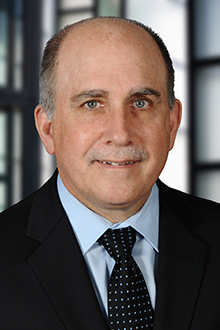Pyramid Technologies, Inc. v. Allied Public Adjusters, Inc.
(Reversal of Summary Judgment In Favor of Property Insurer Required Where District Court Failed to Admit Insured’s Experts’ Testimony in Opposition to Insurer’s Motion for Summary Judgment)
In Pyramid Technologies, Inc. v. Allied Public Adjusters, Inc., 752 F.3d 807 (9th Cir. May 19, 2014), the Ninth Circuit Court of Appeals reversed the district court’s entry of summary judgment in favor of Hartford Casualty Insurance Company (“Hartford”) in connection with a dispute regarding potential coverage of a claim under a commercial insurance policy. Insured, Pyramid Technologies, Inc., (“Pyramid”), operated a warehouse which stored out-of-date electronic parts which it re-sold. Pyramid’s inventory consisted of 52 million parts which were stored in a warehouse on shelves. Pyramid purchased an insurance policy from Hartford. The policy afforded commercial property coverage of $1 million for building replacement costs, $5.5 million dollars for business personal property replacement costs and $3 million dollars for lost business income and additional expenses due to the interruption of business operations. In order to trigger coverage, the policy required damage to property or its direct physical loss.
On August 11, 2005, the warehouse containing Pyramid’s electronic parts was flooded with one to two inches of water. Although the flood water did not reach the shelves on which inventory items were located, packaging for the items contained visible condensation with respect to items stored on the lower three to four shelves in the warehouse. Thereafter, Pyramid became concerned about the humidity level in the warehouse due to the flood and requested Hartford to test the inventory. Hartford refused to do so as it would have cost $13 million to test every item stored in the warehouse. Hartford relied on its adjuster’s opinion that none of the inventory had sustained moisture damage as a result of the flood.
Thereafter, Pyramid hired a public adjuster, Allied Public Adjusters, Inc. to assist in pursuing an insurance claim against Hartford. Pyramid also hired its own experts to determine what the humidity levels were at the time of the flood. According to Pyramid’s expert, the humidity level in the warehouse rose to more than 90% and that the conditions caused by the flood exceeded the protection levels of the moisture – proof packaging for various items stored in the warehouse. Thereafter, Pyramid employees quarantined more than 250,000 items looking for visible signs of corrosion, tarnish, or discoloration. In August 2007, Hartford finally agreed to conduct limited testing of a small subset of parts identified by Pyramid as being damaged.
Hartford retained an expert at SEAL Laboratories to conduct tests on 374 items out of Pyramid’s inventory. The expert determined that 147 of those items exhibited corrosion, tarnish or discoloration. The expert then conducted additional tests on those 147 items and determined that two parts were unsuitable for commercial applications. Finally, the expert determined that the August 11, 2005 flood did not cause the corrosion damage to the parts he examined.
In response, Pyramid hired two additional experts to evaluate the validity of Hartford’s expert’s report. Both experts questiond the opinion of Hartford’s expert and opined that the parts had sustained corrosion and other damage due to the high humidity levels caused by the flood.
Thereafter, Pyramid filed a bad faith lawsuit against Hartford in state court. Hartford removed the action to federal court and filed a motion for summary judgment. As part of the motion, Hartford moved to exclude the testimony of Pyramid’s experts supporting its contention that the parts stored in the warehouse had sustained physical damage due to high humidity levels caused by the flood. The district court granted Hartford’s motion and excluded Pyramid’s proffered expert testimony.
In reversing the district court’s entry of summary judgment, the Court of Appeals held that Pyramid’s experts had met the standards for admissibility of expert testimony as set forth in Rule 702 of the Federal Rules of Evidence. As a result, testimony offered by Pyramid in opposition to Hartford’s motion supported its contention that the flood had caused the damage sustained by the parts stored in the warehouse. Such testimony also supported Pyramid’s claim of bad faith. However, the Court of Appeals rejected Pyramid’s claim business interruption claim because it was based on speculation only. The only lost business claimed by Pyramid related to a potential purchaser of parts which had not yet entered into a contract with Pyramid at the time of the flood.
